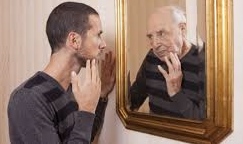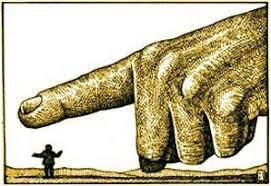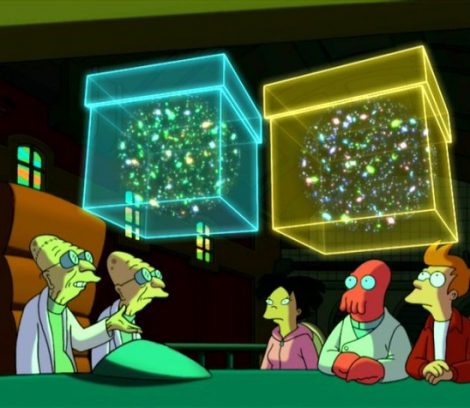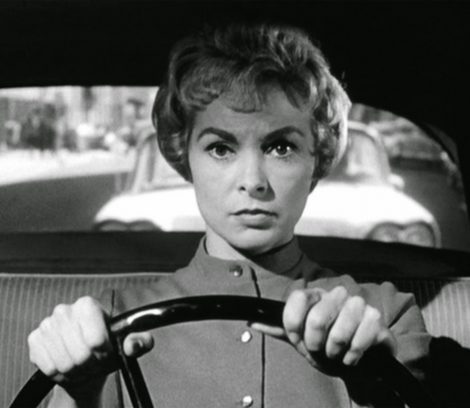
Aging and Other Unmentionables
My Dad, Leo “Pat” Carney, died in 1995 at the age of 94. A native of Emmetsburg, Ia. – named after Irish patriot Robert Emmet and once a magnet for Irish immigrants – my Dad wasn’t flawless but was a great father to whom I’m eternally grateful.
My mother died much younger, so her aging is not fresh in my mind. But I now see my Dad when I look in the mirror. I see his wrinkles, his receding and thinning hair, and a face that exaggerates the worst aspects of my appearance.
I’m him when I struggle to come up with a word or name I thought I knew well. I’m him when I fail to overcome a long-held bias or when I’m tempted to criticize young people for the way they dress or talk. I’m him when I worry about not living up to expectations about being an “active, vibrant elderly person.” I’m him when undergoing those occasional age-related humiliations.
His Last Driver’s Test
I accompanied him, at around age 88, to his last driver’s test. The examiner stood in front of his car, a used vehicle which he had recently bought and with which he wasn’t familiar. I wasn’t allowed in the car but stood near the driver’s side window.
It was a warm day and his window was open. The examiner said, “Turn on your left turn signal, Mr. Carney.” He fumbled around, and I whispered, “The lever on your left, Dad.”
“You can’t help the applicant,” the examiner warned. “Now your right turn signal,” she barked. Again, he struggled to find it. I gave him another hint.
“Please move away from the car, sir,” the examiner scolded. I did what I was told.
With the examiner strapped into the passenger seat, they left for the driving part of the test. I felt sorry for both of them and prayed they would return in one piece. I knew there was little chance he would pass.
When he got the negative exam results, he didn’t complain but I knew he was crushed – though maybe on some level he knew it was for the best. Our family was sympathetic but relieved. Anticipating the time when I will no longer be able to drive, I will share that humiliation.
The elderly have lots of special problems but are relieved from others by age and retirement. So far, I can say that my 60s and part of the 70s have been among my best years.
When it comes to the elderly, we seem to focus on the problems rather than the benefits. It seems, in fact, that society would rather pretend aging didn’t exist. And dare I mention death? That subject is even more taboo.
While many people treat aging people as they do the rest of humankind, others seem to believe that since many aging people don’t produce anything, they have little value. I’ve seen agedness referred to as “human obsolescence.”
Henri Nouwen and Walter Gaffney in “Aging, the Fulfillment of Life,” write that many people view aging as “a sad human fate that nobody can escape and should be avoided at all cost, (and) that growing towards the end of the life cycle is a morbid reality that should only be acknowledged when the signs can no longer be denied.”
There are several problems with this view. The first is that everybody’s aging, even though most people don’t like to think or talk about it. But isn’t it a matter of accepting our humanity, which includes aging and death?
What Is Our Destiny?
Many would say they simply don’t want reminders of our destiny. But what is our destiny? Believers and people searching for God can’t simply adopt society’s views, first because aging is as natural a process as its opposite, the development of an infant, and secondly because death is not an end but a beginning.
I know, for many it may be as hard to imagine an afterlife as it is to imagine entering into oblivion, the view of death held by many. That’s because we view the afterlife in human concepts and talk about it in human terms.
Lifting language from the prophet Isaiah in the Hebrew Bible, the writer of the First Letter to the Corinthians in the Christian Bible assures his readers that “No eye has seen, no ear has heard, and no mind has imagined the things that God has prepared for those who love him.” Indeed, God looks at death differently, says Jesus in the Gospel of Luke. “…To him all are alive.”
That’s another way I’m like my Dad. Despite doubts, he believed that after death he would be welcomed into God’s kingdom.





